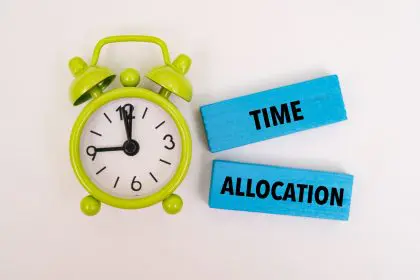Living with ADHD presents unique challenges, but implementing effective strategies can transform daily experiences into manageable and even successful endeavors. For the estimated 4.4% of adults worldwide managing ADHD, finding practical solutions is essential for personal and professional growth.
Understanding the ADHD brain
Before diving into management strategies, recognizing how ADHD affects brain function helps explain why certain approaches work better than others. The condition influences executive functions, including attention regulation, impulse control, and organizational skills. This understanding forms the foundation for developing effective coping mechanisms.
1. Create structure through routine
Establishing a consistent daily routine provides the framework necessary for success. The ADHD brain responds positively to predictability, making routine an essential tool for managing symptoms.
Start by developing morning and evening rituals. These might include setting specific times for waking up and going to bed, planning meals and medication schedules, designating specific spots for important items like keys and phones, and creating a dedicated workspace for important tasks. The key lies in maintaining these routines until they become second nature, reducing the mental energy required for basic daily functions.
2. Implement time management techniques
Time blindness, a common ADHD trait, makes it challenging to estimate how long tasks take and stay on schedule. Breaking large projects into smaller, manageable chunks helps prevent overwhelming feelings and promotes steady progress. Using timer apps or physical timers maintains awareness of time passing and helps stay focused on current tasks.
The Pomodoro Technique, which involves working in 25-minute intervals followed by short breaks, proves particularly effective for many individuals with ADHD. This approach helps maintain focus while preventing mental fatigue.
3. Organize your space and mind
Physical and mental organization significantly impacts ADHD management. Start with your immediate environment by clearing clutter from your workspace and living areas. Minimize distractions by creating designated spaces for different activities. Using color-coding systems, labels, and storage solutions helps maintain order.
Digital organization matters equally. Consider utilizing calendar apps for scheduling, setting up reminder systems, implementing task management apps, and creating digital filing systems for documents. Remember, the goal isn’t perfection but rather creating systems that work for your specific needs and lifestyle.
4. Harness the power of exercise
Physical activity serves as a natural ADHD management tool by increasing dopamine and norepinephrine levels in the brain. These neurotransmitters play crucial roles in attention and mood regulation.
Consider incorporating morning exercise routines to start the day focused, regular movement breaks during work periods, evening physical activity to release excess energy, and mindful activities like yoga or tai chi. Even brief periods of exercise can improve concentration and reduce impulsivity symptoms.
5. Optimize your environment for success
Environmental modifications can significantly impact ADHD symptom management. Natural light exposure helps regulate circadian rhythms and improve focus. Position your workspace near windows when possible. Some individuals with ADHD work better with background noise, while others need silence. Experiment with white noise machines, instrumental music, or noise-canceling headphones to find what works best.
Temperature control plays a crucial role as well. Maintain comfortable room temperatures, as extreme temperatures can affect concentration and comfort levels. Creating an environment that supports focus and productivity makes managing ADHD symptoms more achievable.
6. Develop strong support systems
Building a reliable support network proves invaluable for managing ADHD effectively. Your network should include family members and friends who understand your challenges and can provide emotional support or practical assistance when needed. Mental health professionals who specialize in ADHD treatment can offer targeted strategies and counseling.
Support groups, either in-person or online, provide opportunities to connect with others facing similar challenges. These communities offer spaces to share experiences and solutions, creating valuable networks of understanding and encouragement.
7. Embrace technology and tools
Modern technology offers numerous solutions for common ADHD challenges. Productivity apps help track tasks and deadlines, while meditation apps assist with mindfulness practices. Smart home devices can automate routine tasks and provide helpful reminders throughout the day. Digital calendars with built-in alerts help maintain schedules and remember important appointments.
Moving forward with confidence
Managing ADHD requires patience, persistence, and a willingness to try different approaches until finding what works best for you. Remember that strategies may need adjustment over time as life circumstances change. Success in handling ADHD often comes from combining multiple approaches and remaining flexible in your management strategy.
While these seven strategies provide a solid foundation for managing ADHD, remember that everyone experiences the condition differently. What works perfectly for one person might need modification for another. Seeking professional guidance can help refine these strategies and develop additional techniques tailored to your specific situation.
By incorporating these strategies into daily life, individuals with ADHD can build stronger foundations for success in personal and professional endeavors. The key lies in consistent application and patience while developing new habits and routines. Progress may not always follow a straight line, and setbacks are normal parts of the journey. Celebrate small victories and maintain focus on long-term improvement rather than perfection.
With dedication to implementing these strategies and a supportive network, managing ADHD becomes not just possible but achievable, leading to improved quality of life and greater personal satisfaction. The journey to effective ADHD management is ongoing, but with these tools and techniques, you can create a path forward that works for your unique situation and needs.
Mental health professionals can provide valuable insights and support in implementing these approaches effectively. Their expertise, combined with your commitment to growth and adaptation, creates a powerful foundation for managing ADHD successfully. Remember that seeking help and support is a sign of strength, not weakness, and forms an essential part of your management strategy.














